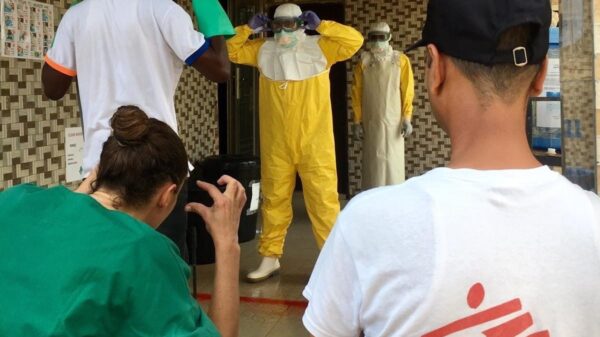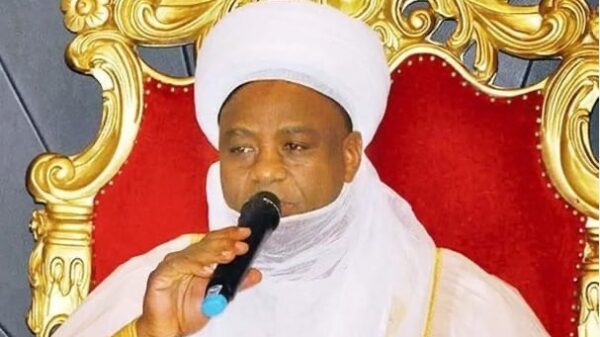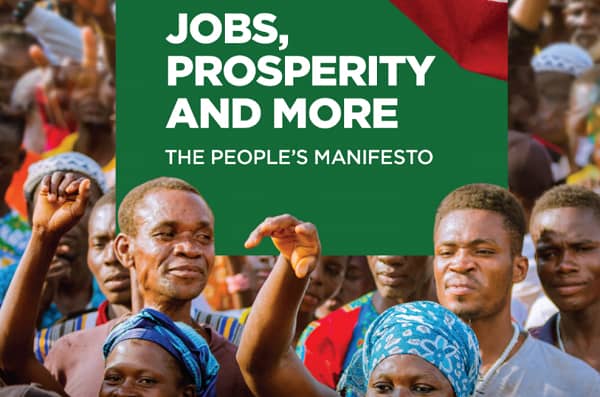Adnan Adams Mohammed
The Ghana government has affirmed that it will not relent on its effort to ensure a prevailing environment to promote job creations.
As the Ghanaian economy is hooked to an economic reform programme powered by the International Monetary Fund, many fears that job of some existing workers are not secured as well as new job opportunities.
But, updating Ghanaians on the economy at a news briefing, the Finance Minister promised that government is committed to creating new jobs through promotion of entrepreneurship among the youth.
“Government is very intentional in ensuring that growth and job creation are not sacrificed in the process of restoring macroeconomic stability and debt sustainability”, Ken Ofori-Atta has said.
Also, he said the government intends to promote entrepreneurship through initiatives such as the YouStart programme “to create more jobs for the banking sector and faith-based organisations”.
Apparently, in its latest economic review update, the Bank of Ghana indicated that, availability of jobs in the country as advertised in selected print and online media which partially gauges labour demand in the economy, have dropped marginally in April 2023 relative to what was observed in the same period in 2022.
In total, 2,581 job adverts were recorded, as compared with 2,777 for the same period in 2022, indicating a year on year decline of 7.1 percent.
On a month-on-month basis, the number of job vacancies went down by 6.3 percent from the 2,754 jobs advertised in March 2023.
Cumulatively, for the first four months of 2023, the total number of advertised jobs declined by 2.9 percent to 10,707 from 11,029 recorded during the same period in 2022.
Also, according to the Central bank’s data,
consumer spending, proxied by domestic VAT collections and retail sales, posted a strong positive performance in March 2023, compared with the corresponding period in 2022.
The domestic VAT collections increased by 92.4 percent on a year-on-year basis to GH¢1,250.68 million, from GH¢649.93 million. Cumulatively, total domestic VAT for the first quarter of 2023 went up by 76.8 percent to GH¢3,196.30 million compared to GH¢1,808.04 million for the corresponding period of last year.
However, retail sales increased by 44.9 percent year-on-year to GH¢165.20 million in March 2023, up from the GH¢114.05 million recorded in the same period in 2022. On a month-on-month basis, retail sales improved by 19.2 percent in March 2023 from GH¢138.60 million in the preceding month. In cumulative terms, retail sales for the first quarter of 2023 went up by 30.3 percent.
Consequently, the government believes that the economic reforms put in place under the IMF-supported program will yield a desirable impact on the economy.
“Our commitment to these reforms is matched by our relentless pursuit of innovation and strengthened partnerships”, the finance minister noted. “Backed by the renewed drive for reforms, the government is working towards securing significant support from our multilateral partners”.
“Altogether, and including the IMF funds, World Bank and AfDB support, we expect multilateral support of about US$2.0 billion for 2023 and US$6.2 billion between 2023 and 2026”, he explained.
Although, he warned that the US$3-billion-three-year IMF programme secured by Ghana is not the end to the country’s economic woes.
Rather, he said it marks the beginning for taking tough decisions to reset the economy on track.
Mr Ofori-Atta said: “We have an ambitious agenda reform”, but caveated: “Let me state clearly that securing an IMF programme is not an end to our current challenges though it has significantly paved the way for the implementation of an ambitious and well-thought-out programme of reform for our economy and country”.
“In fact”, he noted, “the real work of adjustment, realignment, and the path to steady economic growth has just begun”.
“Let us brace ourselves for the needed reform, especially in expenditure control, non-arrears accumulation, revenue growth, ECG revenue collection, and energy sector reforms in order to rebuild the walls of the republic with urgency”, Mr Ofori-Atta said.
He explained that the Post Covid-19 for Economic Growth reform programme now supported by a three-year extended credit facility with the IMF, “is built on clear targets and strong policy and structural measures”.
“Over the medium term, the economic growth-backed IMF programme seeks to promote a credible fiscal consolidation programme anchored by strong domestic revenue mobilisation and high spending efficiency”, indicated Mr Ofori-Atta.
Ghana has already received the first tranche of $600 million on 19 May 2023 right after the Fund’s executive board approved the deal.




























